Fraserburgh businesses have opened up about the “soul destroying” cost of dealing with the town’s seagulls.
Bars, shops and even manufacturing plants are shelling out vast sums compared to counterparts elsewhere, all as a result of the north-east’s avian invasion.
Gray and Adams prides itself on delivering gleaming refrigerated trailers to clients all over the UK – but doing so means workers have to spend an inordinate length of time wiping off droppings.
Senior manager Brian Fraser tells us the cumulative cost on the business is “extortionate”.
And, having tried everything from painting the roof a different colour to bringing in hawks, they are running out of options on how to deal with the gulls…
In town, bar owner Dennis Forsyth is paying the price of living side-by-side with the Broch’s birds.
Meanwhile, there are fears a £7 million revamp of the town centre, designed to boost business, will all be for naught if visitors are scared of even going there.
Keeping Broch depot clean is ‘like painting the Forth Road Bridge’
Cleaning the roofs at Gray and Adams is likened to painting the Forth Road Bridge.
As soon as the job is complete, it’s time to start again.
The firm’s senior manager Brian Fraser and maintenance manager Gordon Harper tell us about the constant conflict with seagulls while showing us around their vast depot just west of Fraserburgh Beach.
The company employs 540 people at its 40 acre site in the town.
And despite having so much space, Brian explains that it’s necessary to keep some trailers outdoors because there isn’t enough room inside.
This is one of their main sources of frustration when it comes to the local gulls.
‘Everything is bloody covered’
Brian, who has worked there for 25 years, gestures towards a row of trailer trucks ready and waiting to be picked up.
To the naked eye, they look pristine.
But Brian confides: “The roofs of those trailers are just plastered, it can be within hours of them being put out.
“Everything is just bloody covered.”
‘It’s all labour, and labour is money’
He continues: “It’s an unfortunate side effect of being where we are, so close to the sea.
“There is a national shortage of materials at the moment, and we are bulk buying a lot to try and stay ahead.
“That means stuff is outside for as long as a week, and contamination is a constant problem.”
Brian explains that the “completion process” carried out before trailers are picked up or sent out largely involves removing layers of bird droppings.
He says: “The final port of call for our trailers is basically cleaning the contamination off them.
“It’s all labour, and labour is money.”
Having to deploy workers to clean up the mess takes them away from their normal jobs, ultimately hampering productivity.
While living with seagulls can be an issue all year round in the Broch, the breeding season from March to September is when things are at their worst.
Gutters become clogged too, and the keeping them clear comes at a “prohibitive cost”.
Another grim aspect of sharing the site with so many birds is disposing of carcasses when they die.
Brian explains: “That’s another big issue, dead gulls on the roof block outlets for the rainwater, along with the usual mess of feathers.
“We had flash flooding two weeks ago, and there was such a stench.”
So what have they tried?
- Painting the roof a shade of green rather than grey: Despite advice this change in hue could deter gulls, it “made not one bit of difference”.
- Bird scarers: Within two days the gulls “were sitting beside them”.
- A sounder system: The “adaptable” species quickly got used to the noise.
- Netting on the roof: Ruled out because the fire service could have to rescue birds stuck in the mesh.
- Moving nests: Successful but only in the short-term, “moving the problem from A to B”
‘Decision-makers need to see problem for themselves’
The company’s joint managing director James Gray pops his head into a cabin where we are chatting.
James spoke up at a recent local meeting about the problem, arguing that politicians need to visit affected communities to see the problem for themselves.
He tells us: “The people making these decisions don’t realise what’s going on.
“Here we have shopkeepers investing their time and money into keeping their premises clean just like we do… And it all adds up.”
Brian interjects: “We spend an extortionate amount keeping everything clean and tidy.
“It is a daily challenge and it feels like it’s getting worse every year.”
Bar owner says cull is only way to deal with Fraserburgh seagulls
Dennis Forsyth doesn’t mince his words when it comes to seagulls.
The owner of Fraserburgh’s Cheers bar regularly forks out to clear up the mess left in his beer garden.
But as just one of several Broch businesses facing the financial burden of clean-up costs, he reckons the cumulative sum involved must be astronomical.
When I ask Dennis what deterrents he would like to see put in place, he offers the weary sigh of a man tired of reaching for compromise.
There is, Dennis says, only “one way” to deal with them.
‘The problem is so large…’
“It’s been highlighted for years and years… It’s soul-destroying,” he explains.
“We have talked about deterrents and bird spikes, or bird scarers.
“But there is one thing and one thing only that can make a difference – and that’s control of these birds.
“I am afraid that’s the only way, the problem is so large there is no other choice.
“The council needs to get a licence then employ someone to do the cull.”
The RSPB, it should be noted, says government licences to kill urban gulls are only granted “as a last resort” where a “significant risk to public health or safety” is identified.
Dennis acknowledges the idea is a “hard” one to take, but points to efforts to control the deer population as evidence it’s not that out of the ordinary.
And it’s a method backed by the majority of P&J readers who took part in our poll.
‘We have to say enough is enough’
Three times in the past year, bosses at Gray and Adams have hired a pest controller to spray eggs.
Results were positive, but not long-lasting.
Regardless, Brian thinks it’s something that should be “looked at by the wider town”, with a concentrated effort perhaps driving the birds away.
James Gray later tells us: “I’m all for preservation, but there comes a point where we have to say enough’s enough.”
Fraserburgh seagull issues blight town’s reinvention
This all comes at a time when Fraserburgh is trying to reinvent itself, with almost £7m spent on doing up the town.
In June, a fun day was held to mark the completion of several projects designed to ramp up footfall.
What do you think would help decrease Fraserburgh’s seagull problems? Let us know in our comments section below
But looming overhead were the spectres at the feast – the notorious seagull population spreading as much fear and dread as Jaws did while summer celebrations took place in fictional Amity.
Councillor Doreen Mair, who also backs a cull, thinks they could hamper Fraserburgh’s progress unless something is done.
She said: “We are trying to make Fraserburgh a place people come for shopping, but nothing will put folk off like getting attacked.”
Alongside the threat of violence is the mess the animals make of the Broch.
The community council’s Ashley Mackenzie told us: “If you were to walk up the pavement heading towards this beautiful new monument you would think ‘what’s going on here?’
“It looks like a Jackson Pollock painting!”
Is there another way to deal with Fraserburgh seagulls?
But, of course, since seagulls started moving inland decades ago, Fraserburgh has become used to putting up with the birds.
And chairwoman of Broch Businesses Together, Ainsley Dyga, is more diplomatic when it comes to dealing with them.
Ainsley, who runs the R&S Dyga newsagents and gift shop, says traders “take pride in their town” and quite happily clean their premises.
As for a solution?
She believes putting spikes on more lampposts will keep problems to a minimum.
And Ainsley tells us a neighbour has seen some success in keeping the birds at bay by draping bunting across her garden.
So we have competing ideas at play – from festooning the streets in bunting to organising a cull.
As the council looks to finally ease the issue, desperate traders will hope no stone is left unturned in the search for answers.
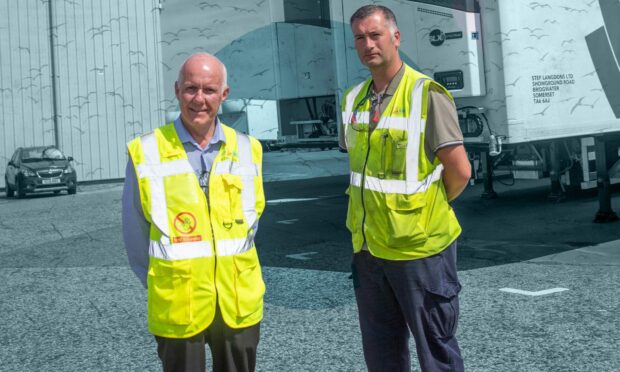
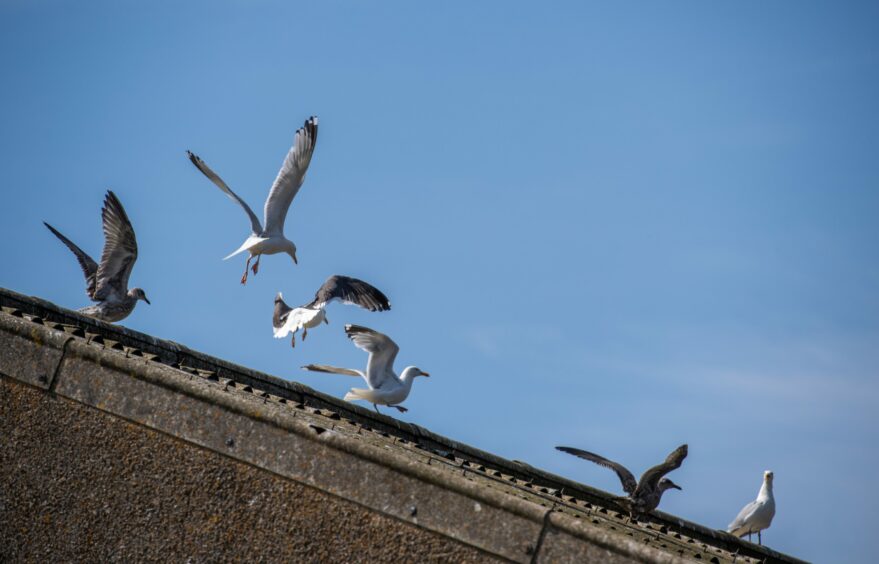

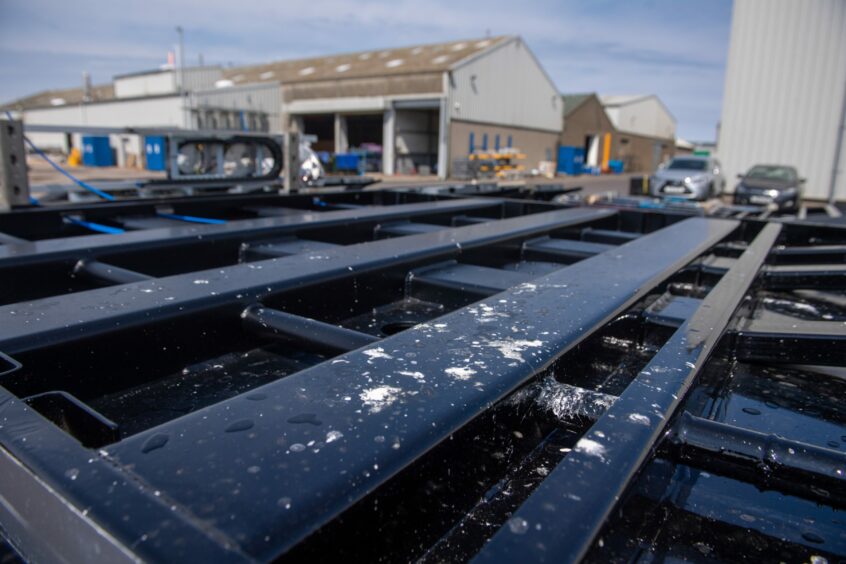
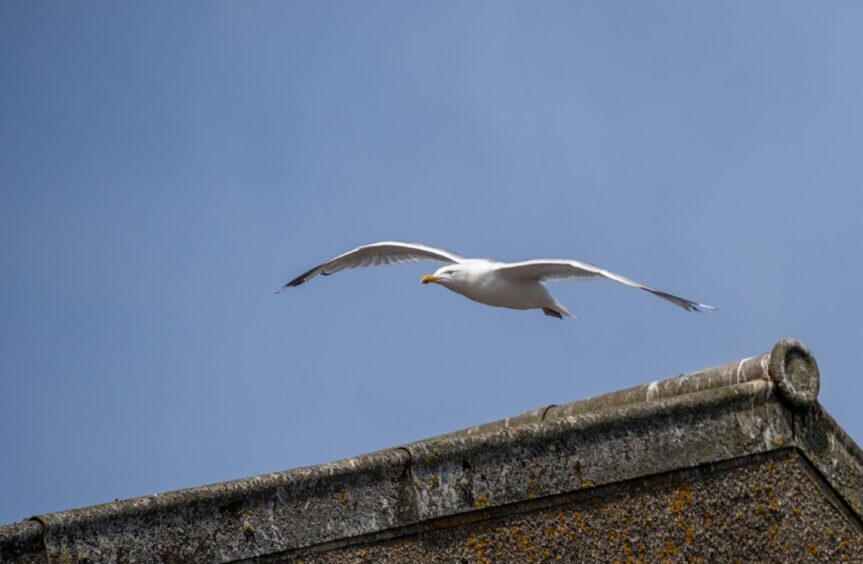
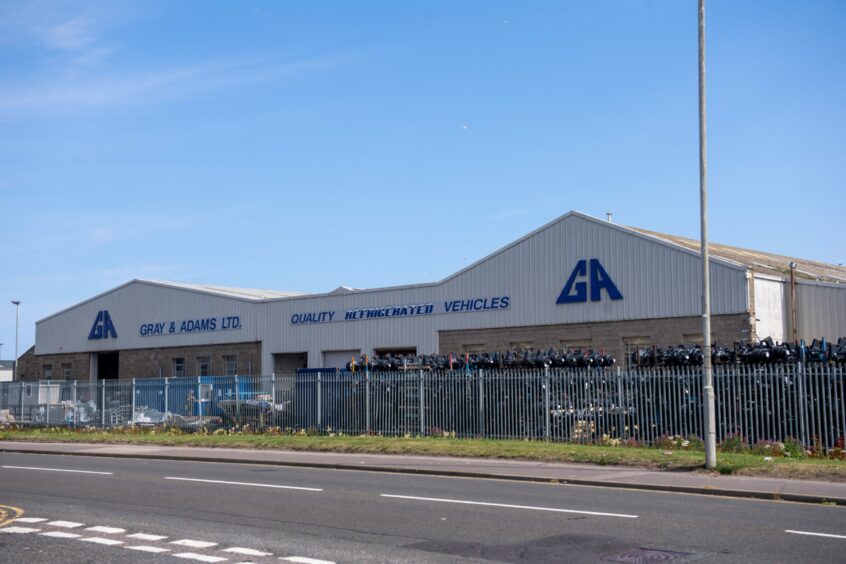
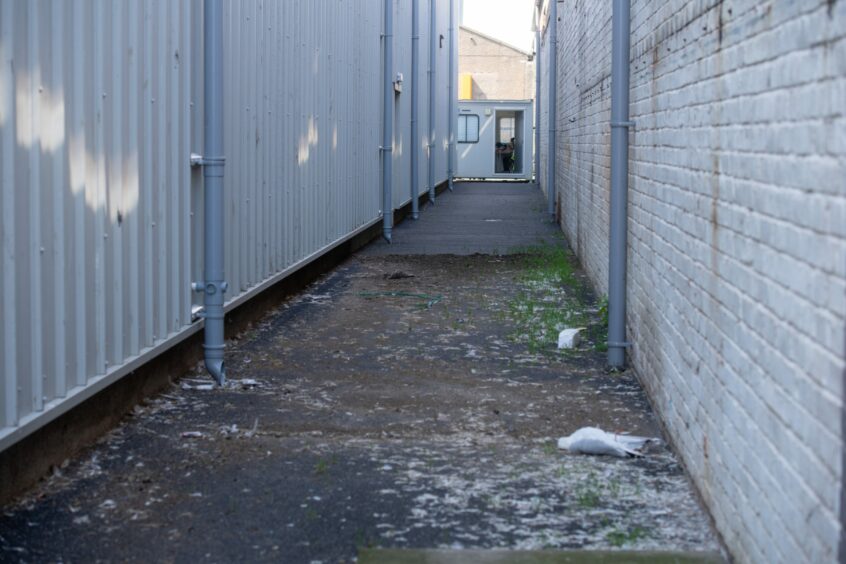
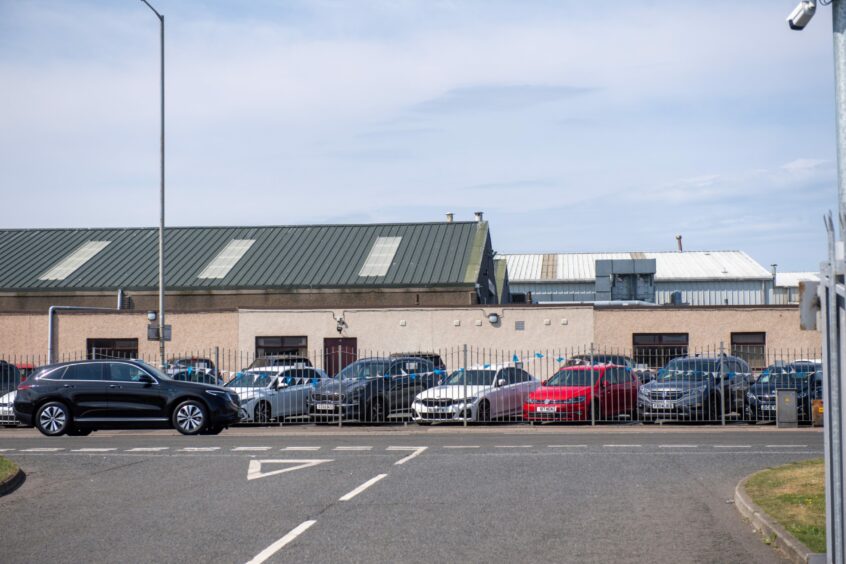

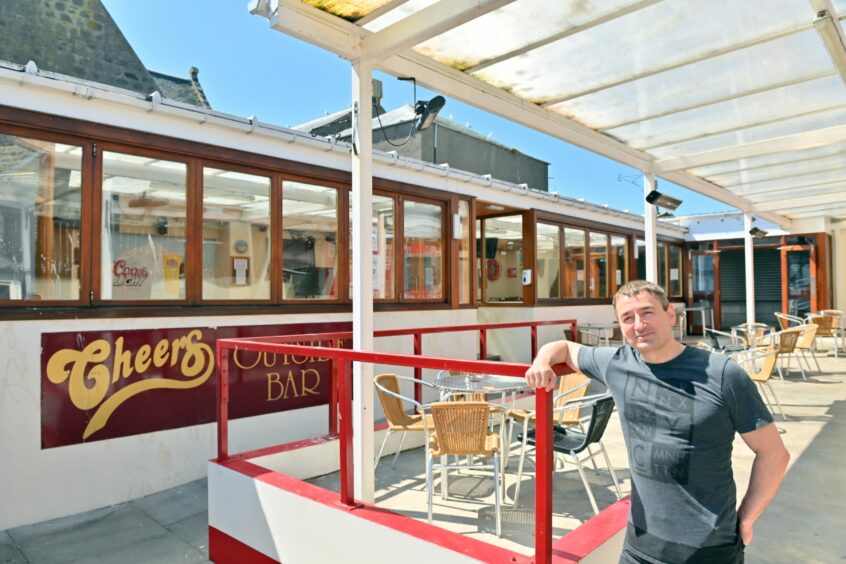
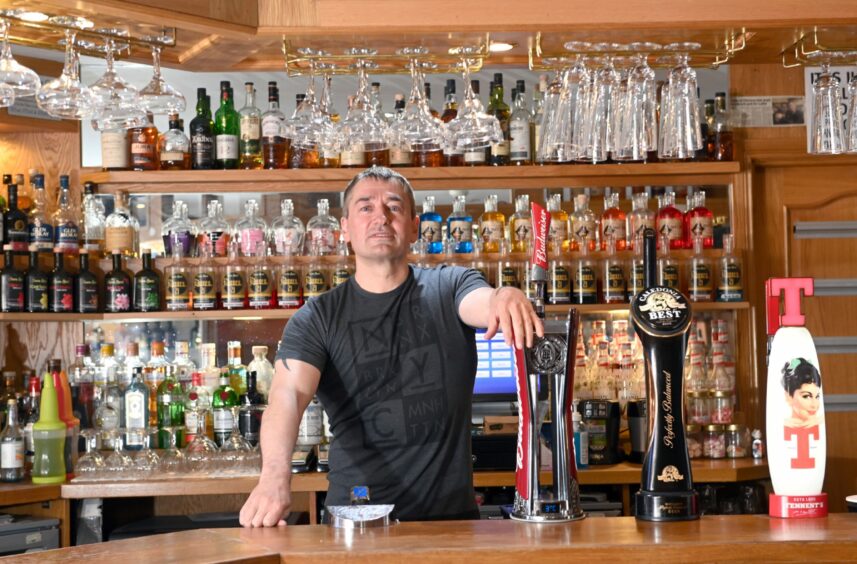
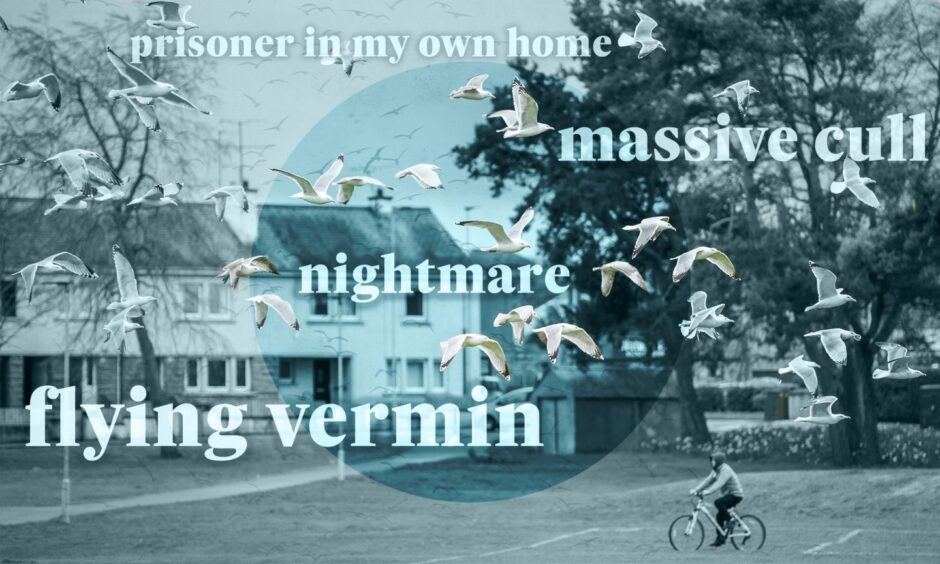
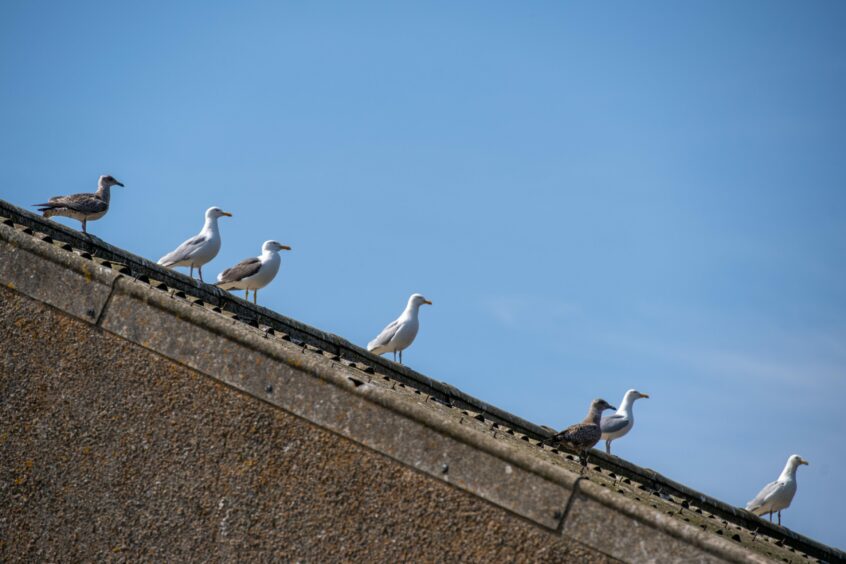



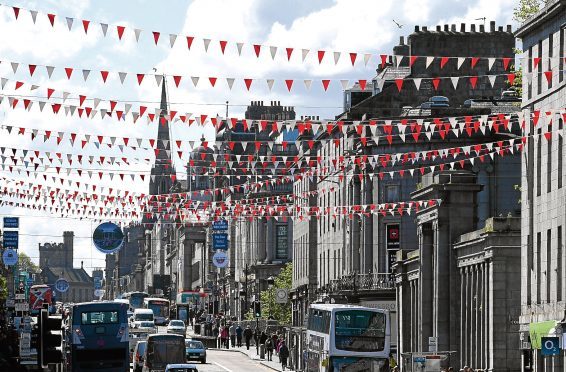
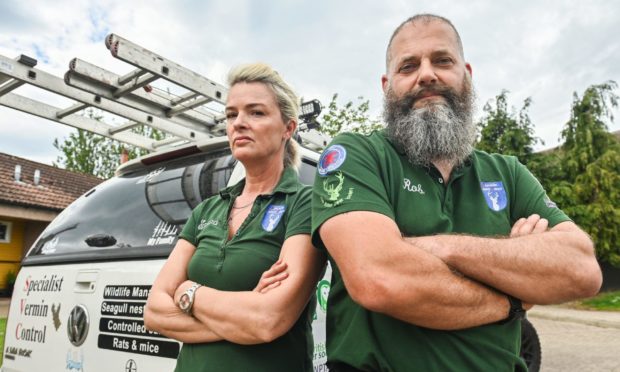
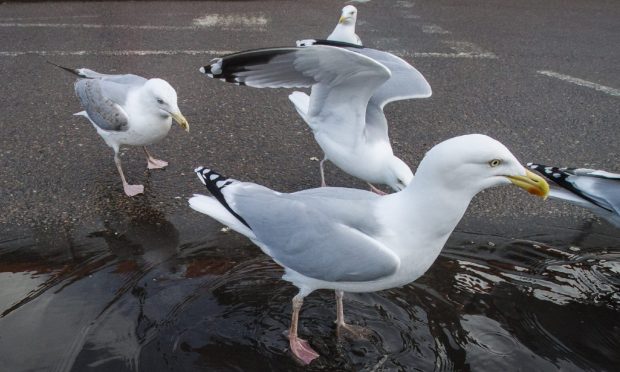
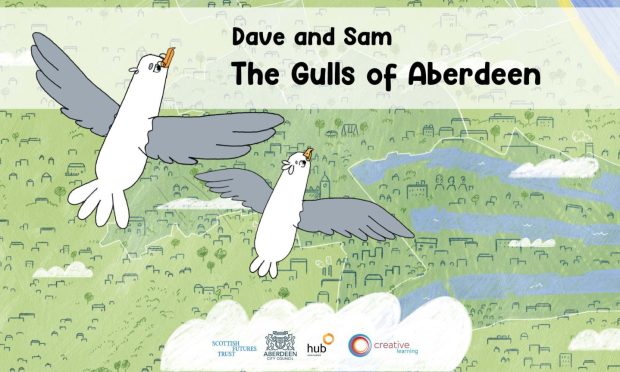
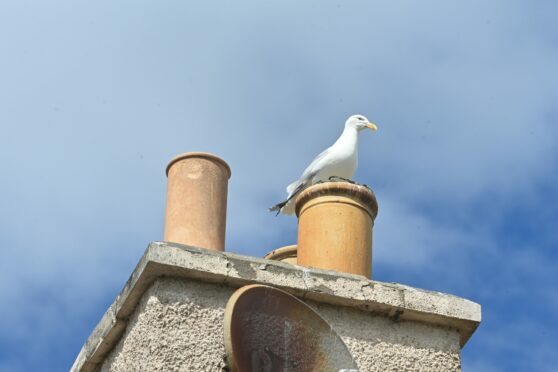
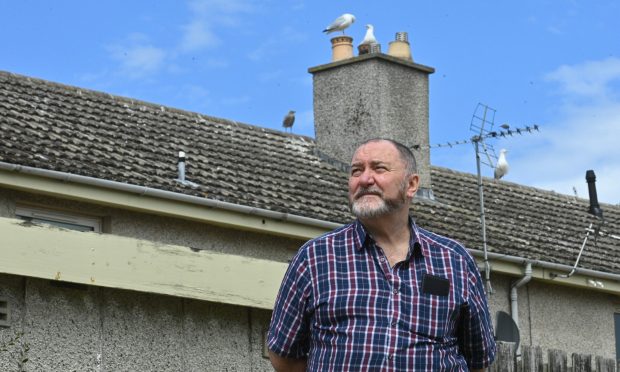
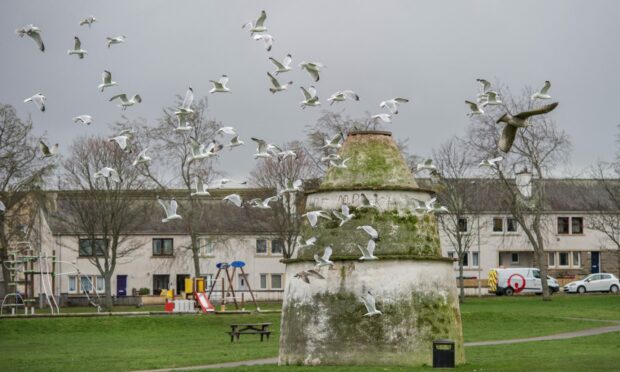
Conversation